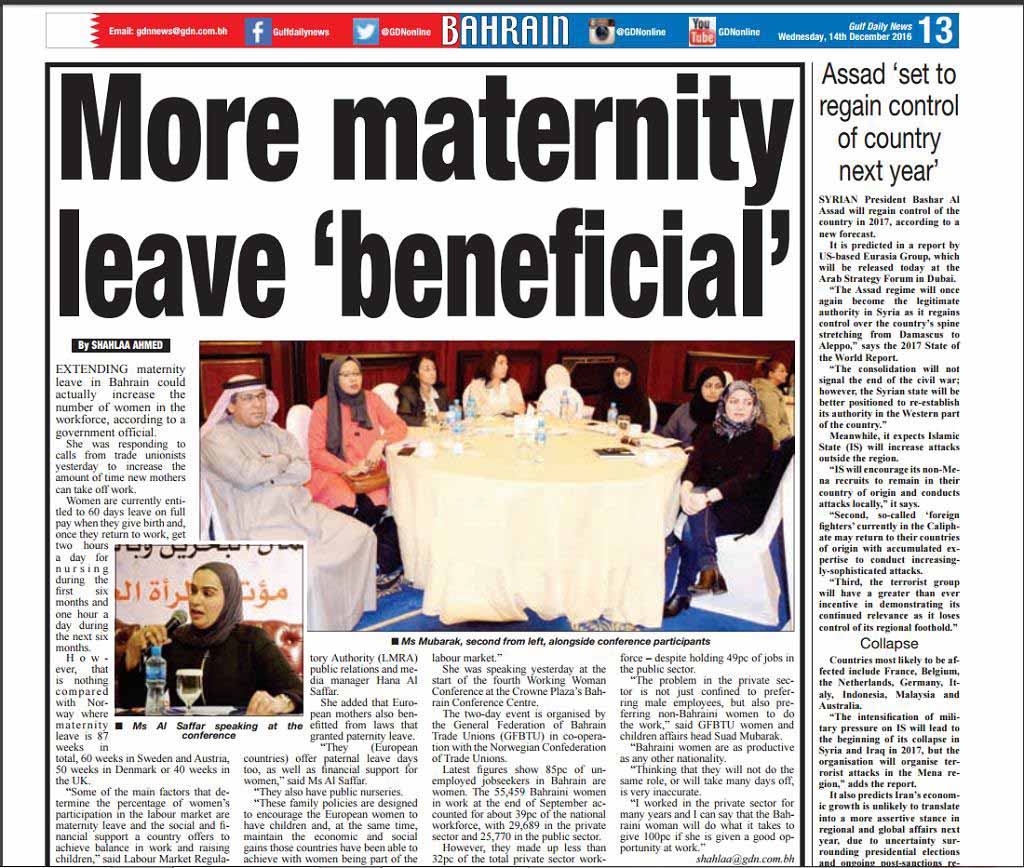EXTENDING maternity leave in Bahrain could actually increase the number of women in the workforce, according to a government official.She was responding to calls from trade unionists yesterday to increase the amount of time new mothers can take off work.
Women are currently entitled to 60 days leave on full pay when they give birth and, once they return to work, get two hours a day for nursing during the first six months and one hour a day during the next six months.
However, that is nothing compared with Norway where maternity leave is 87 weeks in total, 60 weeks in Sweden and Austria, 50 weeks in Denmark or 40 weeks in the UK.
“Some of the main factors that determine the percentage of women’s participation in the labour market are maternity leave and the social and financial support a country offers to achieve balance in work and raising children,” said Labour Market Regulatory Authority (LMRA) public relations and media manager Hana Al Saffar.
She added that European mothers also benefitted from laws that granted paternity leave.
“They (European countries) offer paternal leave days too, as well as financial support for women,” said Ms Al Saffar.
“They also have public nurseries.
“These family policies are designed to encourage the European women to have children and, at the same time, maintain the economic and social gains those countries have been able to achieve with women being part of the labour market.”
She was speaking yesterday at the start of the fourth Working Woman Conference at the Crowne Plaza’s Bahrain Conference Centre.
The two-day event is organised by the General Federation of Bahrain Trade Unions (GFBTU) in co-operation with the Norwegian Confederation of Trade Unions.
Latest figures show 85pc of unemployed jobseekers in Bahrain are women. The 55,459 Bahraini women in work at the end of September accounted for about 39pc of the national workforce, with 29,689 in the private sector and 25,770 in the public sector.
However, they made up less than 32pc of the total private sector workforce – despite holding 49pc of jobs in the public sector.
“The problem in the private sector is not just confined to preferring male employees, but also preferring non-Bahraini women to do the work,” said GFBTU women and children affairs head Suad Mubarak.
“Bahraini women are as productive as any other nationality.
“Thinking that they will not do the same role, or will take many days off, is very inaccurate.
“I worked in the private sector for many years and I can say that the Bahraini woman will do what it takes to give 100pc if she is given a good opportunity at work.”

